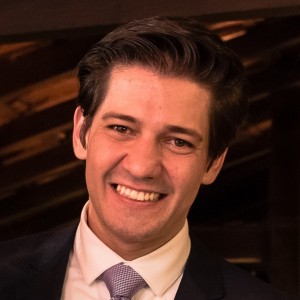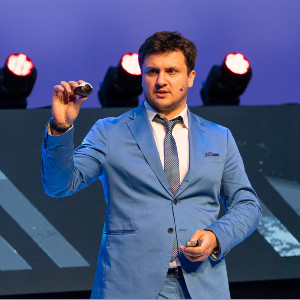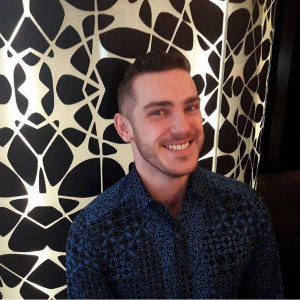Hi, I have an upcoming interview with McK for an internship and would like to know what some of the typical personal fit questions are? Thanks
What are some typical personal fit questions in a McKinsey interview?


Dear Alice,
For your clarification I want to share with you some questions which can help you to streamline your stories into right direction:
Leadership
- Tell me about a time you led others.
- Tell me about a time when you were on a team that had a conflict that was keeping it from achieving its objective.
- How do you motivate people?
Personal Impact
- Tell me about a time you had to convince someone to change their mind on something important to them.
- Tell me about a difficult situation where you had to rely on your communication skills.
- What do you want to be remembered for and how are you achieving it?
Entrepreneurial Drive
- Did you ever have a goal that you weren’t able to achieve? What did you do?
- Tell me about a time that you dealt with a tough problem.
- Tell me about a failure.
Hope it helps you,
Best,
André
I think that are two key things when thinking about the PEI(Personal Experience Interview) at McKinsey:
- Your stories need to be very specific. When you tell a story, it is important to share all the details that go with it. For example, if you are telling a story about when you convinced someone, they'll want to know how was that interaction, what did you say, what did the person responded, and so on. Write down your story.
- Don't confuse the stories. Leadership is about leading teams, is about managing people to achieve one specific goal and dealing with the innerworkings of a team, it is not about achieving exceptional results (it can be a failed story). Personal impact is about how you, and not the team, achieved exceptional result. Don't ever use the word "us", always "I". Entrepreneurial drive is not about founding a company, is about having an idea and implementing it despite a not helpful scenario.
Hope this helps clarify a little bit.
Good luck!

1) Concerning Personal Impact = Convincing one specific other person (not multiple persons at once, no team included in this dimension) about a topic, so that he finally changes his opinion
What is a ncessary core ingredient for s strong Personal Impact example is an underlying conflicting interest – and both parties need to have a strong interest in the outcome of the situation.
Ideally, your example is going on over at least several days, better weeks for showing a strategic masterplan on how you convinced this person.
2) Concerning Entrepreneurial Drive = Achieving a goal which is clearly outside your regular role and responsibilities
You wanted to achieve something by yourself (and no one else imposed this task on you) and can explain a strong motivation behind. Necessary core ingredient of a strong example are several big obstacles which you needed to overcome.
Hi Alice,
thanks again for participating so actively in our forum.
An answer that was given by Guennael on another thread might be helpful for you. He is explaining the differences between leadership, drive, and impact:
Have you ever taken a leadership position, in a sporting club, student organization, non-profit... even study group?
Drive is the fire in your belly: what do you do when you want something bad? Are you going to make it happen regardless of time commitment or difficulties?
Impact is the result your actions have had, typically on others. Did you raise money for your organization? Increase membership? Help a couple of poor kids learn how to read? If you hadn't been here, how much worse would things be? That is the impact you've had.
Drive typically comes before impact, but these are two very different concepts
You can find the original thread here: Different selection criteria of MBBs
Hope this helps!
All the best for the rest of your prep,
Astrid
PrepLounge Community Management


Hi Anonymous,
I agree with Guennael on the importance of the fit part; as additional details, the most likely fit questions and topics you will find are:
- Tell me about yourself (personal overview)
- Why consulting (motivational)
- Why McK (motivational)
- Give me an example when you led a team (leadership)
- Tell me about a time when you had to convince someone not agreeing with you (impact)
- What has been your major achievement so far (drive)
- Why should we hire you (motivational)
In general, you should always cover, the key areas of leadership, impact and drive for a McKinsey interview.
The best way to prepare is to complete the following checklist:
- Understand the difference between, leadership, impact and drive areas. You can find a link with their differences here: https://www.preplounge.com/en/consulting-forum/mckinsey-pei-difference-drive-and-personal-impact-918#a1780
- Identify good stories for each area. Ideally you want to have at least two stories for each area. Three would be even better.
- Use a structure for your story. I would suggest to use the STARR model (Situation, Task, Action, Rational for Action, Results)
- Identify for each story one sentence clarifying what the story is about and start with it. Think of it as the title of a journal article.
- Practice live, collect feedback from people listening to you, reiterate until when you get fluent and convincing
Best,
Francesco

Hi,
Interviewer usually asks 3 sets of questions:
- “Tell me about yourself” or “walk me through your resume”- this is how Consultants usually begin the interview. It's an opportunity for them to learn about you and to pick some interesting facts. Don’t lose this opportunity since the 1st impression is usually the strongest.
- “Why consulting?”, “Why McKinsey” or “Why BCG” questions are used to assess your motivation to be a consultant in general and to work in that particular firm. They will check how you have done your homework and what you’ve learned about them. They also want to make sure that you have a clear intention to work in consulting. "Why consulting" is a question about you and your career path. "Why McKinsey" is more about a particular company and even particular local office.
- Next, the interviewer will also ask you to provide examples from your background to assess how good you are as a leader or a team player; how you can create impact and persuade people; or how you can achieve your goals. These are all parts of consulting mindset - DNA of consultants, and you should be ready to prove that you are one of them.
- At the end of the interview, you will also have an opportunity to ask your questions to the interviewer. Most of the candidates disregard this part in preparation, while it is a great chance to demonstrate the intellectual capacity and build some relationship with the interviewer.
The length is related to your story and additional questions your interviewer may ask.
I recommend using the STAR framework:
- Start with a 1 sentence summary what is the story about
- In Situation, you should briefly provide the context, usually in 1 or 2 sentences
- Task usually includes 2 or 3 sentences describing the problem and your objective.
- Then you provide a list of specific actions you took to achieve the goal. It should take 1 or 2 sentences per action (Usually 3-4 actions). Note that the interviewer can stop you any minute and ask for more details.
- The results part should have 1 or 2 sentences describing the outcomes. This part is finalizing your story - make sure it can impress the interviewer and stay in the memory.
It is important that the Interviewers will drill down into your story to understand the dynamics, your reactions and decisions and most of all the rationale behind them. They will follow up with other questions as you tell your story to make sure they understand it in enough detail. I recommend to prepare for these additional questions in advance.
Best,
Vlad

Hello!
On top of the insights already shared in the post, the "Integrated FIT guide for MBB" has been recently published in PrepLounge´s shop (https://www.preplounge.com/en/shop/tests-2/integrated-fit-guide-for-mbb-34)
It provides an end-to-end preparation for all three MBB interviews, tackling each firms particularities and combining key concepts review and a hands-on methodology. Following the book, the candidate will prepare his/her stories by practicing with over 50 real questions and leveraging special frameworks and worksheets that guide step-by-step, developed by the author and her experience as a Master in Management professor and coach. Finally, as further guidance, the guide encompasses over 20 examples from real candidates.
Feel free to PM me for disccount codes, since we still have some left from the launch!
Hope you find it useful!
Best,
Clara

Personally, I like your story of persuading a shy girl to join toastmasters, since you did have impact on that person and is quite unique story. I also like your volunteering service as an example of entrepreneurial drive. I cannot tell you what other example to use, since I dont know you and dnt know what experience you have, but I think the most important part is not the story itself, but what you make of it. Using a story-telling approach is a good method for the PEI questions with McK: start explaining the context of the example youre using (1), elaborate the problem you (and your team) had (2), discuss the solution you used to solve it (3), if in a team tell about the impact you had in solving the problem (4), finish by evaluating how you handled it and the lessons you have learned. You can prepare for this part really well and adapt the story based on the specific question the interviewer is asking. Don’t spend too much time on the context, but rather on the other parts of the story and especially what your role was.

Hi Anonymous,
as for your first question, the PEI at McKinsey is structured around three key dimensions, leadership, impact and drive. I have provided a description for them below:
1) Leadership is about leading a whole team in a challenging situation and showing team management skills. Questions include:
- Give me three examples of a time that you lead a group.
- What are some key lessons you have learned about motivating people?
Here you want to emphasize how you overcome a difficult situation leading a team.
2) Personal Impact is mainly based on persuading someone about doing/not doing something. Questions include:
- Tell me about a time that you persuaded your boss to go along with an idea you had.
- Tell me about a difficult situation where you had to rely on your communication skills.
Here you want to emphasize your influence on someone else, usually in disagreement with you.
3) Entrepreneurial Drive is about implementing something overcoming major difficulties. Examples include:
- What was a situation where you set a major goal and been able to achieve it?
- What has been your major accomplishment so far?
Here you want to emphasize the achievement you reached and the process that led you there.
The best way to structure your stories is to use the STARR approach (Situation, Task, Action, Rational for action and Results), which helps the interviewer to understand all the key areas of your story.
Besides the previous dimensions, common questions also include:
- Tell me about yourself
- Why consulting
- Why McKinsey
- Why should we hire you
As for your second question, yes, you should always start the case with a structure. Moreover, you should also structure your approach for questions asked during the case, before proceeding with brainstorming/creativity solutions.
Hope this helps,
Francesco

Dear A,
The fit questions in these interviews are really about story telling. Of course, you will get the typical questions like: Why do you want to be a consultant? Why do you want to work at this firm?
The part the differentiates you will be the “tell me about a time” questions that inevitably take up a large portion of the interviews at these firms. The better you are at telling your stories, the better off you’ll be. And I recommend to make these stories both work related and lifestyle in order to show your skills of being a leader, team player and problem solving person.
Just remember that answering to any questions like this is your chance to shine and prove your leadership skills. Actually, any stories that you mention in your answer can highlight your best abilities. For that you can follow common framework in answering any questions. It consists of 5 parts:
1. Situation
2. Problem
3. Solution
4. Results
5. Your learnings
Hope, it helps.
Best,
André

Why consulting
Why McK
What do you think the biggest challenge will be when you join
Tell me a time you had no idea what you were doing
Tell me a time you failed
Tell me a project you lead that you are most proud of
...
To prepare, I suggest you put things down on paper at first; once you have a good idea of what you'll want to say, start saying it to someone else, outloud. One more thing: Yes, the case interview part is the most important; do not overlook the fit though, I am constantly shocked at how bad some of the candidates' answers are. It isn't complicated, but you still need to work at it and prepare a little bit.
Good luck -

Hi A,
I would recommend you to fit your answer in this common framework which is winning for any personal fit question:
1. Situation
2. Problem
3. Solving
4 Result
5. Your learnings.
Good luck!
Best,
André

Hello!
On top of the insights already shared in the post, next week will be pusblished in PrepLounge´s Shop material related.
In concrete, the "Integrated FIT guide for MBB". It provides an end-to-end preparation for all three MBB interviews, tackling each firms particularities and combining key concepts review and a hands-on methodology. Following the book, the candidate will prepare his/her stories by practicing with over 50 real questions and leveraging special frameworks and worksheets that guide step-by-step, developed by the author and her experience as a Master in Management professor and coach. Finally, as further guidance, the guide encompasses over 20 examples from real candidates.
Hope you find it useful!
Fit question is to check if you can become a part of the company from the day one. You either understand and belong to the firm or not. If you want to be perfect on the fit question - you need to get into the consulting mode right straight from the beginning. You have to be sharp and professional not less. Think about it & act accordingly. Starting from the morning when you wake up for your interview day, and up until the moment you exit the firm's building. If you need to get a role model - talk to the real consultants from McKinsey. And practice as much as you can. Since the moment they see you are one of them - you're there. Period.
Hi Daniel,
I'm also looking to get some experience and feedbacll with personal fit questions.
We should arrange a meeting.
I'm currently living in Jaakrta (GMT +7), so lets see if we can find a time that works for both of us.
Regards,
Luke.
Hi Daniel,
I am also preparing for McK Germany. Would be great to exchange stories next week. If interested PM me.
Best, Kevin

Hello!
On top of the insights already shared in the post, next week will be pusblished in PrepLounge´s Shop material related.
In concrete, the "Integrated FIT guide for MBB". It provides an end-to-end preparation for all three MBB interviews, tackling each firms particularities and combining key concepts review and a hands-on methodology. Following the book, the candidate will prepare his/her stories by practicing with over 50 real questions and leveraging special frameworks and worksheets that guide step-by-step, developed by the author and her experience as a Master in Management professor and coach. Finally, as further guidance, the guide encompasses over 20 examples from real candidates.
Hope you find it useful!

On the top of the questions of what has been said. I want to provide you with tiny recommendation on how to answer them.
Nothing could be easier than this questions, and nothing can be tougher. the easiest way to make it your answer unstructure is to go through your resume in a chronological way. Basically the question behind this question from the interviewer is to get an understanding how is your experience, skills and accomplishments make you an ideal candidate for that specific role.
So, to answer brilliant on this question take out from your resume the most relevant experience and structure your narration in a way that will reply to the following questions:
-
How led you to that role
-
What did you learn from that role
-
How did that influence your next steps
Also, I would recommend you to use STAR+L approach (Situation, Task, Approach, Result, Learnings).
Does it make sense to you?
GB

Hi,
On the top of the questions of what has been mentioned. I want to share with you some recommendations on how to answer them.
Nothing could be easier than this questions, and nothing can be tougher. the easiest way to make it your answer unstructure is to go through your resume in a chronological way. Basically the question behind this question from the interviewer is to get an understanding how is your experience, skills and accomplishments make you an ideal candidate for that specific role.
So, to answer brilliant on this question take out from your resume the most relevant experience and structure your narration in a way that will reply to the following questions:
-
How led you to that role
-
What did you learn from that role
-
How did that influence your next steps
Also, I would recommend you to use STAR+L approach (Situation, Task, Approach, Result, Learnings).
Does it make sense to you?
GB




















